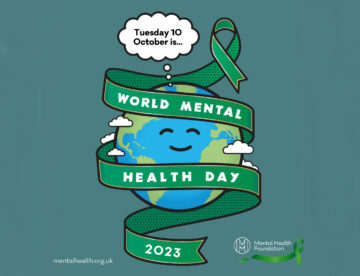
This Thursday, October 10th, 2024, we observe World Mental Health Day—a global reminder to take mental wellbeing seriously. This year’s theme, set by the World Federation for Mental Health, is: “It’s time to prioritise mental health in the workplace.”
In today’s fast-paced world, the workplace can sometimes become a source of chronic stress, which can lead to burnout and other health complications. In this week’s blog, we’ll help you recognise the signs of burnout and share practical ways to safeguard your mental health at work.

The title of this week’s blog might seem obvious but, in reality, there are all kinds of barriers that prevent people from experiencing good mental health – barriers in our homes, schools and workplaces as well as other issues like simply not knowing how to talk to each other about worries and feelings.
We’ve previously published articles focusing on how to look after your own mental health so, for this year’s mental health day, we’re sharing some tips for how you can check in with and support others.

One in four of us will, at some point in our lives, be affected by mental health issues. This ranges from common problems like anxiety, stress and depression to rarer, highly complex conditions such as bipolar disorder, schizophrenia and psychosis.
While in recent years people have started to talk more openly about poor mental health, in many societies and communities there remains a stigma around the subject and the problem appears to be on the rise.
Today is World Mental Health Day and this year the theme is ‘making mental health and wellbeing for all a global priority.’ Taking the global perspective may be a bit beyond our reach but we have found some tips for how people can prioritise their own mental health. Read on to find out more.

Today (October 10th) is World Mental Health Day, a campaign designed to raise awareness of mental health issues, remove the stigma that’s often associated with poor mental health and invite everyone to be part of that conversation. This year’s theme is ‘suicide prevention’ and it may come as a shock to learn that more than…
